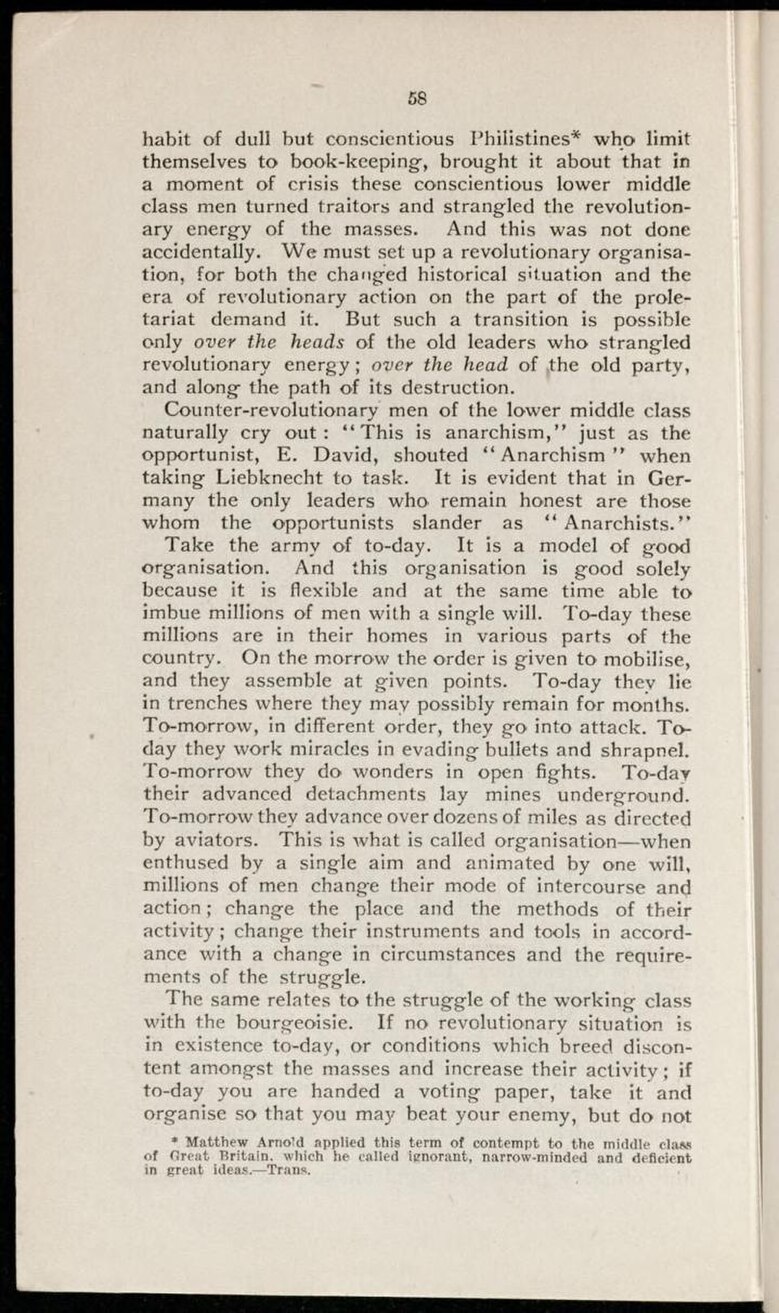58
habit of dull but conscientious Philistines[1] who limit themselves to book-keeping, brought it about that in a moment of crisis these conscientious lower middle class men turned traitors and strangled the revolutionary energy of the masses. And this was not done accidentally. We must set up a revolutionary organisation, for both the changed historical situation and the era of revolutionary action on the part of the proletariat demand it. But such a transition is possible only over the heads of the old leaders who strangled revolutionary energy; over the head of the old party, and along the path of its destruction.
Counter-revolutionary men of the lower middle class naturally cry out: "This is anarchism,'" just as the opportunist, E. David, shouted "Anarchism " when taking Liebknecht to task. It is evident that in Germany the only leaders who remain honest are those whom the opportunists slander as "Anarchists."
Take the army of to-day. It is a model of good organisation. And this organisation is good solely because it is flexible and at the same time able to imbue millions of men with a single will. To-day these millions are in their homes in various parts of the country. On the morrow the order is given to mobilise, and they assemble at given points. To-day they lie in trenches where they may possibly remain for months. To-morrow, in different order, they go into attack. To-day they work miracles in evading bullets and shrapnel. To-morrow they do wonders in open fights. To-day their advanced detachments lay mines underground. To-morrow they advance over dozens of miles as directed by aviators. This is what is called organisation—when enthused by a single aim and animated by one will, millions of men change their mode of intercourse and action; change the place and the methods of their activity; change their instruments and tools in accordance with a change in circumstances and the requirements of the struggle.
The same relates to the struggle of the working class with the bourgeoisie. If no revolutionary situation is in existence to-day, or conditions which breed discontent amongst the masses and increase their activity; if to-day you are handed a voting paper, take it and organise so that you may beat your enemy, but do not
- ↑ Matthew Arnold applied this term of contempt to the middle class of Great Britain. which he called ignorant, narrow-minded and deficient in great ideas.—Trans.
